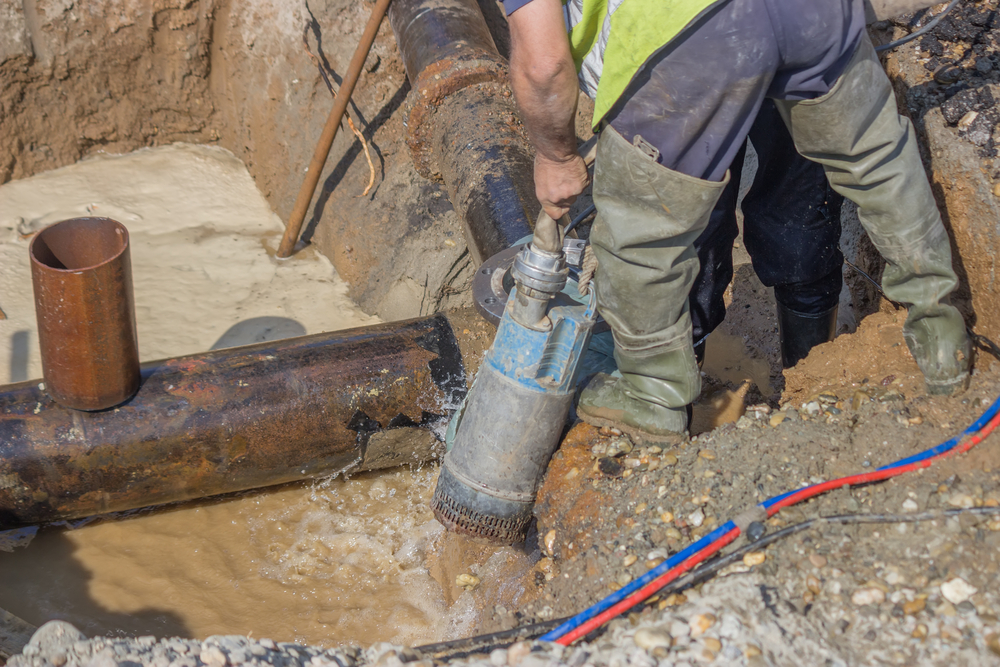As a construction company owner in Utah, you likely sometimes need to schedule dewatering before beginning your project. But do you always need a dewatering permit first? Erosion Control Services explains how to stay in compliance with Environmental Protection Agency and Department of Environmental Quality rules and regulations.
What Is Dewatering?
Sometimes a construction site will have standing water on it. If the land is flat and was cleared some time ago, you may have the equivalent of large mud puddles in various areas. These may only occur after a heavy rain, or they may always be there. Regardless, they need to be drained before construction can begin.
Puddles and standing water on a construction site can pose a number of hazards for the workers, as well as affect the progress of the work. Trucks can make ruts or get stuck trying to drive through wet soil. Foundation holes may fill with water and lose their shape. Wet soil is far less stable than dry soil and could shift, hampering work and endangering workers. Wet surfaces could cause workers to slip, and if there is any electricity onsite, puddles make for an electrocution hazard.
Dewatering a construction site usually consists of pumping the water out or drilling some temporary wells. Dewatering may be necessary even if you don’t see surface water. If the water table at the construction site is high, you will run into problems when you begin to dig.
When Do You Need a Dewatering Permit?
You need a dewatering permit in Utah anytime you will be discharging water into a public drain that is not treated before it is released into local water bodies.
The dewatering permit allows you to discharge only water that is not contaminated. If the water on your site is contaminated, you must first treat it before releasing it into a public drain.
Filing an NOI (Notice of Intent)
Construction companies may be allowed to discharge water that is not groundwater from the site they are working on if it is properly noted in the NOI. Examples of this type of discharge include water used to wash wheels before trucks exit a construction site, water used as a cutting fluid and water produced when testing pumps and wells. In all instances, the water must not be contaminated.
Dewatering Safely
While you may think you are qualified to perform your own dewatering, it’s important to be sure of this fact so that you are not cited for violations. Water on your site may be contaminated with oil or other substances, and if this is the case, it will need to be separated before the water can be discharged. It may be easier and less risky to use a professional dewatering company. Erosion Control Services can handle the testing so you’ll know for sure whether or not your water is contaminated.
Further, you must take care to discharge the water so that is does not erode nearby soil. The hoses that carry the discharged water must reach a drain or other safe area so as not to cause erosion control issues.
Rely on Erosion Control Services
The team at Erosion Control Services can help you with your dewatering permit and NOI. We are experts in SWPPP in both Utah. Contact us with questions about dewatering, SWPPP and erosion control.


